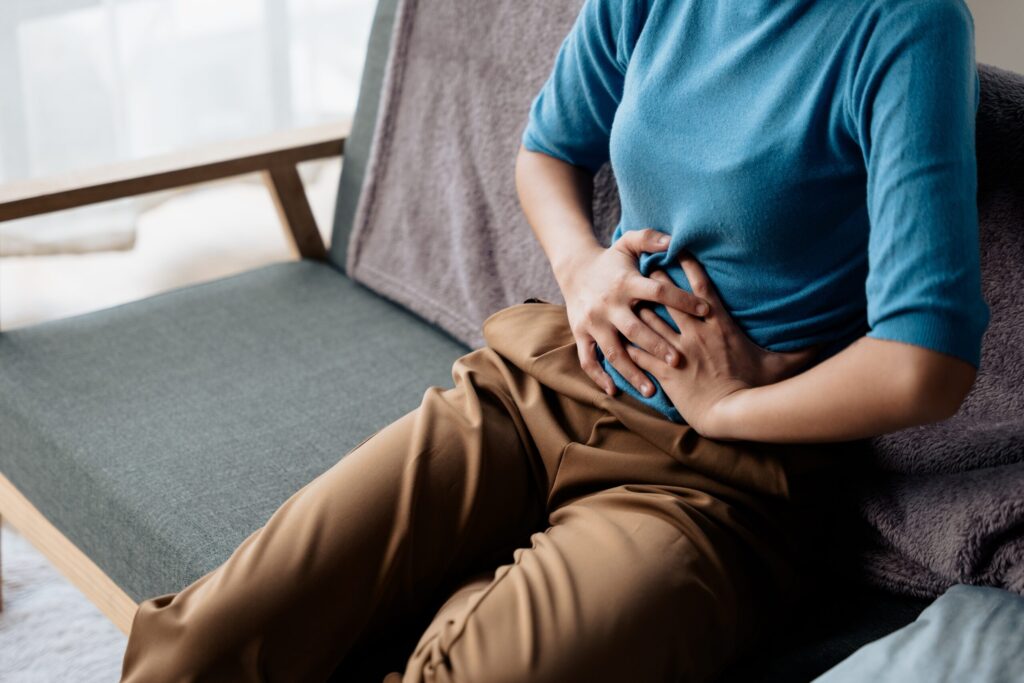Everyone in Thibodaux knows the feeling of “Cajun heartburn” after a big meal. But what about stomach pain that doesn’t fade? It might start as a pinch near your belly button after dinner, then sharpen along your lower right side. Before long, you’re left wondering: is this just gas, or something more serious?
Gas pain is usually harmless, but appendicitis can be life-threatening if not treated quickly, according to the American Medical Association (AMA). And at Thibodaux Regional Urgent Care, we can help you find out what’s really behind your symptoms. Here’s how to know when it’s time to get checked.
What Is Appendicitis?
For starters, appendicitis is what sends about 300,000 people to U.S. hospitals each year, according to the National Library of Medicine.
Appendicitis an inflammation of the appendix, a small organ in the lower right side of your abdomen. It often starts with a dull ache near your belly button, then shifts to sharper, constant pain in the lower right side. Other common symptoms include:
- Loss of appetite
- Nausea or vomiting
- Low fever
- Abdominal swelling
If your appendix bursts, infection can spread throughout the stomach area, which can be life-threatening. It requires fast treatment — often with surgery.
What Is Gas Pain?
Gas pain happens whenever too much air builds up in your digestive system. It can cause bloating, cramping, or pressure that moves around your midsection. Common triggers include:
- Eating too quickly
- Carbonated beverages
- Spicy foods
- Fried or greasy meals
It can come and go in waves. Simple things like passing gas or burping can relieve the pain — unlike appendicitis. And also unlike appendicitis, gas pain usually gets better within a few hours and isn’t accompanied by fever or steadily worsening pain.
How to Tell the Difference
While only a medical provider can confirm the source of your pain, these general differences between gas pain and real appendicitis reflect guidance from the Cleveland Clinic (for gas pain) and Johns Hopkins Medicine (for appendicitis):
| Symptom | Gas Pain | Appendicitis |
| Pain Location | Shifts freely around the abdomen | Most often starts near the belly button, then fixes at the lower right |
| Pattern | Comes and goes | Gets worse over the course of the day |
| Relief | Burping and passing gas makes it better | Nothing makes it better |
| Other Signs | Bloating | Fever, nausea, loss of appetite |
In short, using the bathroom or passing gas won’t ease appendicitis pain. While both can cause discomfort in similar parts of the body, appendicitis is a serious internal problem that needs medical attention right away.
When to Seek Care and Where to Go
If you’re not sure whether your pain is from gas or appendicitis, urgent care is a smart first stop. Here at Thibodaux Urgent Care, we can:
- Check your stomach for areas of tenderness
- Order blood tests or imaging right here at the clinic
- Provide pain relief and supportive care
- Arrange a transfer to the ER if you need it
So, come to urgent care right away if:
- Your pain is mild to moderate but persistent
- You’re unsure if it’s gas or something more
- You want testing without an ER wait
Go straight to the ER or call 911 if:
- Your pain becomes severe
- You have a fever with either nausea or vomiting
- The pain worsens by the hour
Urgent care can quickly evaluate and start treatment for abdominal pain, but the ER is where emergency surgeries happen. If your symptoms aren’t yet severe, we can save you time, give you answers, and guide you to the next step if needed.
Reducing Your Appendicitis Risk
There’s no guaranteed way to prevent appendicitis, as confirmed by the Cleveland Clinic, but keeping your digestive system healthy may help lower risk:
- Drinking plenty of water each day
- Eating a diet rich in fruits, vegetables, and whole grains
- Engage in regular physical activity to support your overall health and digestive system
Don’t Wait — Get Checked Out at Thibodaux
When your gut tells you something’s not right, listen to it. Find care. No one ever regrets going to urgent care to make sure, and if it does turn out to be serious, you’ll be glad you acted. Thibodaux Regional Urgent Care is open seven days a week from 9 a.m. to 8 p.m. — no appointments needed. Just call or walk in today for fast and compassionate care


